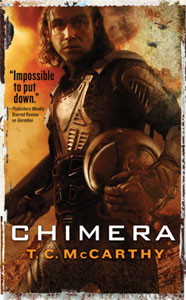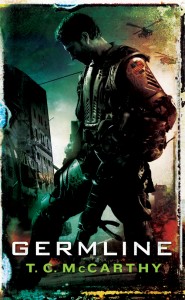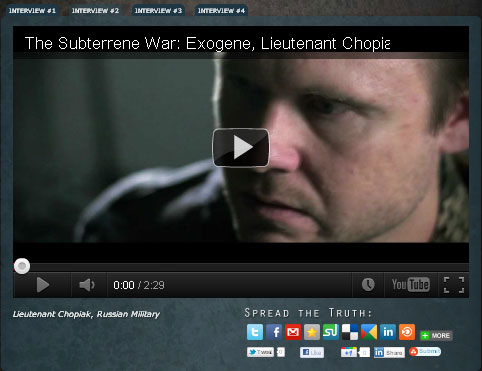Creating a good protagonist, and why James Bond is a permanent teenager . . .
Chris Bunch and Allan Cole wrote the Sten Chronicles – one of the truly classic military science fiction series. As of this week, you can now buy the entire series (that’s eight books!) in these three gorgeous Orbit omnibus editions in print and ebook – that’s BATTLECRY (UK|ANZ), JUGGERNAUT (UK|ANZ) and DEATH MATCH (UK|ANZ).
Read on to find out in Allan’s words how he and Chris created the eponymous Sten, and to find out a bit more about how to come up with a multi-book protagonist of your own.
Chris Bunch and I went about breaking into book-world with the same fervor that we attacked Hollywood. Young and dumb as we were, we thought we could conjure up the key to literary success that has eluded countless wannabe writers, past, present and future.
The first thing, we decided, was that if we came up with a series – instead of a standalone novel – there was more of a chance that all the books would remain in print. A little bit true at the time, but mostly wishful thinking these days.
Then we looked at the genre markets. Westerns? We dearly loved Westerns. But in those days – both in books and the movies – the Oater, as they called it, was done. Westerns just weren’t selling.
Detectives, then? We were ardent fans of Chandler and Hammett – all the hard boiled guys. Again, at the time mysteries and detective stories had a limited, if passionate, audience. A flurry of rack sales, then the local library, where the sale of one book serves a legion of readers, but does not impress your banker one damn bit.
We finally settled on Science Fiction – fantasy was still waiting for Terry Brooks to break that genre out of the doldrums. Plus we had been ardent science fiction readers since childhood.
Next, we examined the nature of book series. In our opinion, there was a tendency for writers to grow to despise their main characters after a few books.
 Sir Arthur came to hate Holmes so much that he killed him. The storm over that literary assassination eventually led to Holmes’ miraculous revival. Agatha Christie loathed Poirot, but wisely let him live. Ian Fleming killed James Bond in FROM RUSSIA WITH LOVE, only to resurrect 007 in DR. NO to appease his publishers and fans. And so on. There are countless examples. (more…)
Sir Arthur came to hate Holmes so much that he killed him. The storm over that literary assassination eventually led to Holmes’ miraculous revival. Agatha Christie loathed Poirot, but wisely let him live. Ian Fleming killed James Bond in FROM RUSSIA WITH LOVE, only to resurrect 007 in DR. NO to appease his publishers and fans. And so on. There are countless examples. (more…)





 However, when I was writing my first SF novel DEBATABLE SPACE, I was very struck by the fact that in modern wars then being fought (this was at the height of the Iraq war) such supposed science fictional technology had become a matter of fact. We’ve seen smart missiles turning corners and unmanned drones hovering above enemy forces, and peasant guerrillas brandishing surface to air rocket-launchers that fire missiles with computer tracking technology. The war of the future is with us today; and my Doppelganger Robots are no more than a minor extrapolation of what is taking place already.
However, when I was writing my first SF novel DEBATABLE SPACE, I was very struck by the fact that in modern wars then being fought (this was at the height of the Iraq war) such supposed science fictional technology had become a matter of fact. We’ve seen smart missiles turning corners and unmanned drones hovering above enemy forces, and peasant guerrillas brandishing surface to air rocket-launchers that fire missiles with computer tracking technology. The war of the future is with us today; and my Doppelganger Robots are no more than a minor extrapolation of what is taking place already.
